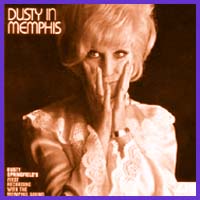Dusty Springfield died after a long struggle with breast cancer on Mar 2, at her home outside London, in the UK. She was 59. The soulful pop queen cut a formidable figure in the swinging London ’60s with her panda-eye make-up and platinum beehive.
She moved to the United States later in her career, making a home in LA for 15 years.
Dusty first achieved success in the early 1960s with such chart toppers as “I Only Want To Be With You,” “You Don’t Have to Say You Love Me,” and “Wishing And Hoping,” the latter penned by legendary tunesmiths Burt Bacharach and Hal David. Bacharach praised her soulful, sexy voice, saying he was always very flattered when she sang his songs.
Dusty was the darling of yet another famous songwriting duo — Carole King and Gerry Goffin. Five of their songs appeared on her comeback album, Dusty In Memphis, released in 1969. The best-seller was recorded by the fabled Memphis production team of Jerry Wexler, Tom Dowd and Arif Mardin. This trio was hot off hit-making sessions with the likes of Aretha Franklin, Wilson Pickett and King Curtis.
The full impact of their inspired studio minimalism is more than evident in Dusty’s signature vocal performance, “Son Of A Preacher Man,” which hit number 10 on the pop charts of the day. In a little known bit of pop music history, Aretha was offered Preacher Man before Dusty, but, inexplicably, she turned it down.
According to Jerry Wexler, the Queen Of Soul lived to regret her decision upon hearing Dusty’s steamy ode to Billy Ray, the only boy who could ever teach her.
But it wasn’t just boys who had something to teach her. Dusty’s scandalous polymorphous perversity was hot gossip in the ’70s.
She declared publicly that she was “as capable of being swayed by a woman as by a man” and promptly began following the women’s professional tennis circuit. She struck up a friendship with Billie Jean King.
And Dusty and musician Carole Pope had an affair, living together in Toronto in the mid 1980s.
During the course of her life, Dusty battled long stints of alcoholism, drug addiction and depression that lead to at least one attempted suicide. She was first introduced to alcohol by a member of The Temptations, who offered her 88 proof vodka as a quick remedy for stage fright.
She sobered up in the ’80s and later said she could not recall much of the time she lived in the US. She also made it known that she spent most of her life feeling wretched, ugly and fat, but had a personal and musical epiphany at 16 when she looked at herself in the mirror and said: “Be miserable, or be someone else.” She chose the latter, and shortly thereafter she changed her name, started playing in a band and began dressing glitzy gowns and heavy make-up. Little wonder her popularity with gay men and lesbians has rarely flagged.
Dusty’s career was revived again in the late 1980s by the flaming lead singer of the Pet Shop Boys, Neil Tennant. They recorded the mega hit “What Have I Done To Deserve This.”
In this decade, she was introduced to a whole new generation of fans with the appearance of “Son Of A Preacher Man” on the best-selling Pulp Fiction soundtrack.


 Why you can trust Xtra
Why you can trust Xtra


